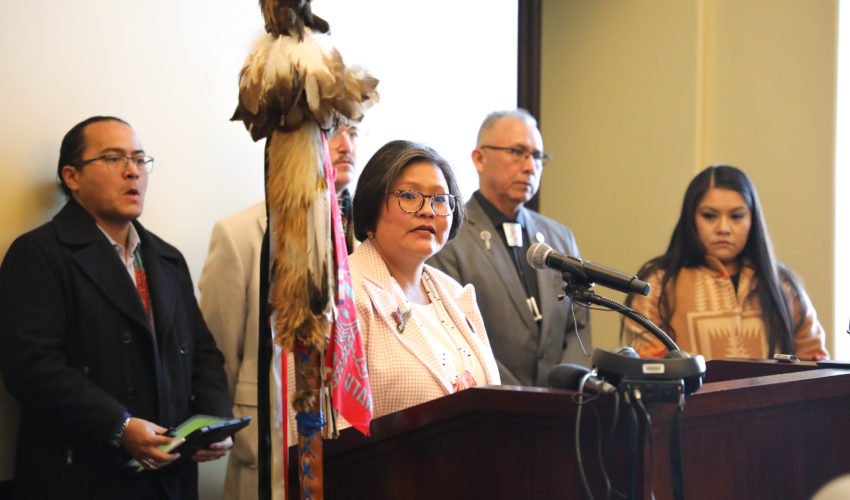
February 23, 2023 Update:
The House Judiciary Committee voted unanimously on HB40 on Feb. 22, moving the bill along to be voted on in the House. As of Feb. 23, the bill is in the second reading within the House.
—
HB40, a bill created to work with Utah tribes to protect Native children, is currently in the House during this year’s state legislative session.
The bill will address jurisdiction over Native child custody proceedings, parental rights, placement, record keeping, information availability and more.
HB40 is meant to make the federal Indian Child Welfare Act, passed in 1978, part of Utah law “to protect the best interest of Indian Children and to promote the stability and security of Indian tribes and families by the establishment of minimum Federal standards for the removal of Indian children and placement of such children in homes which will reflect the unique values of Indian culture.”
Ozzy Escarate, director of American Indian/Alaska Native Health and Family Services, said making the act part of state law means they will be able to tailor the law to the unique needs of the eight Utah tribes.
Escarate said they have agreements with every tribe on ICWA and how they want to manage and oversee those cases. The agreements are settled upon by both tribal leadership and state leadership.
“Tribes and the sate feel that we have the ability to have something in place that will be better than the generic law,” Escarate said. He also said making ICWA state law would strengthen the relationships between the tribes in Utah and provide a more personalized approach to case management.
“What makes me passionate is seeing that continuation of their culture and language in native ways or traditional ways,” Escarate said.
Escarate said people seem to view the world through their own lens and often not through the “tribal lens.” Escarate travels to the the reservations and meet with the elders and leaders of different tribes and said he is able to see how happy they are and is “really honored” to be able to work with both state and tribal leaders.
Escarate has used his motivation to help draft this bill alongside the ICWA working group. “The ICWA working group is made up of different stakeholders from DCFS, our office, tribal leaders from all the nations, attorneys, the Attorney General’s Office and different individuals that play different roles within the child welfare system,” Escarate said. The group has been meeting bi-weekly since August to get the bill ready to pass onto the sponsor.
Representative Christine Watkins is the sponsor for the bill and spoke about its importance. “One thing they want to push is that they want their children to stay with them. They want those kids to go to family members, kin, tribal members or even another tribe.”
Watkins said the tribes are sovereign entities and are essentially a country within a country. They do not want people to come in and take their children away from them and their way of life.
“We had a gentleman from the Goshute tribe who said that when he was growing up they were taught to hide if other cars came to where they were. Family members would be taken and never come back,” Watkins said.
The bill is is currently being held, and although two legislatives have flipped their vote in support of the bill, it is still not enough, Watkins said.
A statement from the Attorney General’s Office said, “The Attorney General’s Office, the Utah Committee on juvenile Justice, Voices for Utah Children and other key stakeholders are working on and support the bill. As of February 6, 2023, the bill is tabled in the House judiciary committee due to the concerns of some legislators.”
Watkins also said part of the reasons the bill is held is because of a case currently in the Supreme Court regarding a Texas couple who wanted to adopt a Native American child. “They thought that ICWA was discrimination,” Watkins said. “The other side is that ICWA is a nation’s right to be able to keep their children within their tribe.”
Escarate said the bill is not a political process for them and that their goal is to help the tribes and their children.
“The way we look at it is this is in the best interest of the children of the families that come from the eight different tribal nations of Utah,” he said.




